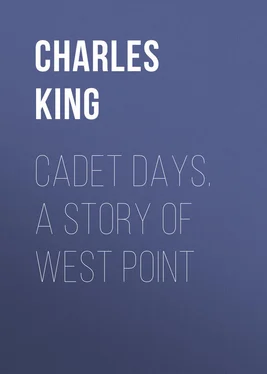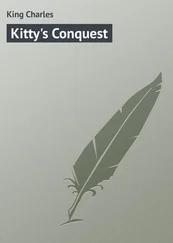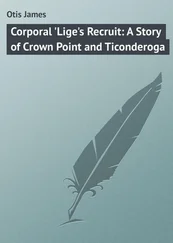Charles King - Cadet Days. A Story of West Point
Здесь есть возможность читать онлайн «Charles King - Cadet Days. A Story of West Point» — ознакомительный отрывок электронной книги совершенно бесплатно, а после прочтения отрывка купить полную версию. В некоторых случаях можно слушать аудио, скачать через торрент в формате fb2 и присутствует краткое содержание. Жанр: foreign_language, foreign_prose, на английском языке. Описание произведения, (предисловие) а так же отзывы посетителей доступны на портале библиотеки ЛибКат.
- Название:Cadet Days. A Story of West Point
- Автор:
- Жанр:
- Год:неизвестен
- ISBN:нет данных
- Рейтинг книги:5 / 5. Голосов: 1
-
Избранное:Добавить в избранное
- Отзывы:
-
Ваша оценка:
- 100
- 1
- 2
- 3
- 4
- 5
Cadet Days. A Story of West Point: краткое содержание, описание и аннотация
Предлагаем к чтению аннотацию, описание, краткое содержание или предисловие (зависит от того, что написал сам автор книги «Cadet Days. A Story of West Point»). Если вы не нашли необходимую информацию о книге — напишите в комментариях, мы постараемся отыскать её.
Cadet Days. A Story of West Point — читать онлайн ознакомительный отрывок
Ниже представлен текст книги, разбитый по страницам. Система сохранения места последней прочитанной страницы, позволяет с удобством читать онлайн бесплатно книгу «Cadet Days. A Story of West Point», без необходимости каждый раз заново искать на чём Вы остановились. Поставьте закладку, и сможете в любой момент перейти на страницу, на которой закончили чтение.
Интервал:
Закладка:
Charles King
Cadet Days / A Story of West Point
CHAPTER I
"Pops, there's no use talking; we've simply got to send you to the Point."
"I'm sure I wish you could, Colonel. Father's tried every way he could think of, but cadetships don't go a-begging – out here, at least. The President has only one or two 'at large' appointments this year, and there were over a thousand applications for them."
"Well, have you tried Mr. Pierce, the Congressman for this district?"
"Oh, yes, sir, tried him long ago. He was very polite – Congressmen always are. He asked me to go round and get all the signatures to my application I possibly could, and kept me running for six weeks or so. Then he gave it to Mr. Breifogle's son."
Colonel Belknap smiled. "Yes, I remember hearing," said he, reflectively, tapping his spurred boot-heel with his riding-switch and critically eying the sturdy young fellow who stood respectfully before him. George Graham, the post surgeon's eldest son, was just seventeen, of medium height, wiry and athletic in build, with deep chest and broad shoulders, with close-curling brown hair, with big, frank, steady blue eyes, and a complexion that was probably fair enough in his baby days, but now was so tanned by sun and wind that the down just sprouting on his cheeks and upper lip seemed almost white by contrast. A picture of boyish health, strength, and activity was "Geordie," as his mother ever called him in vain protest against the familiar "Pops" by which he was generally hailed – a pet name given him by the officers when he was but a "four-year-old," far out in Arizona – a boy who had been reared in the West, whose first playmate was a wild little Apache, whose earliest friends were the rough troopers at an isolated station; a boy who had been taught to hunt and trail and shoot the Indian arrow before he was nine; who had ridden "pony-back" across the continent from Arizona to Kansas with a cavalry column before he was ten; who had stalked an antelope along the Smoky Hill before he was twelve; who had shot a black bear in the Yellowstone Mountains when he was only fifteen; and raced a buffalo bull into the fords of Milk River within sight of the British possessions across latitude 49 within the following year. He had met and mingled with Indians of many a tribe. He had picked up something of the Apache tongue from his playmate Dick; had visited the Navajo Reservation, near old Fort Defiance, in New Mexico, and brought away as his very own one of their wonderful woven blankets. He had learned not a little of the sign-language, and so was able to communicate and make himself understood among even the Cheyenne urchins around Fort Supply. After that his father had been stationed just long enough at Niobrara to enable Geordie to feel quite at home among the Ogallala and Brulé Sioux, whose reservations were just across the Dakota line, and whose visits to the post were frequent. Then the doctor was ordered far up to Fort Assiniboine, where Pops expected to freeze, but found the summer days as hot as they were in Arizona, and the mosquitoes worse than they were at Supply. There he studied the Northern Indians, and came to the conclusion that the Blackfeet and Gros-Ventres could not be compared favorably with the lithe and sinewy and marvellously active Indians of Arizona. Geordie swore by the Apaches. There were no trailers like the Tontos; no bowmen or ball-players like the Hualpais. The Sioux and Cheyennes could ride, perhaps, but all the Sioux in Dakota could not whip Eskeldetsee's band "if you put 'em in the mountains" – which was probably true. And so by the time he was seventeen Geordie had ridden, marched, or travelled by ambulance, stage, or rail through most of the great Western States and Territories; but from the time he was four years old he had never been east of Omaha, or set foot in the streets of a bigger town than Cheyenne.
Nor had he ever regularly attended any school. There were no schools to speak of near any of the garrisons at which his father was stationed; but Dr. Graham was a man of scholarly tastes, a graduate of a famous university in Scotland, and one who by faithful study kept abreast of the leading minds in his profession. People generally led a very healthful open-air life on the broad Western frontier, and Dr. Graham had few patients to claim his time. He planned, therefore, all the studies for his two boys, he himself hearing them recite in history, geography, and arithmetic, while their devoted mother, at whose knee they had successively learned their A B C's, and whose fragile white hand had guided their chubby fists in the tracing of their first pot-hooks, was their instructor in the other rudiments.
Regularly, five mornings a week, the little fellows were set at their books right after guard-mounting, and, with brief intermission, worked until the bugles sounded "orderly call," or the drums and fifes merrily played "Roast Beef of Old England" at noon. No wonder they learned to welcome that call. Then they had their frugal luncheon. The doctor was a stanch Scotchman, who believed that boyish brawn and brain throve better on "parritch" and milk than on any other pabulum. Think of boys who never knew the taste of candy until after they were twelve – to whom hot biscuit was forbidden, and tea and coffee tabooed! They grew up ruddy-cheeked, freckle-faced, clear-eyed, sturdy-limbed, burly young "Hielanders," with marvellous capacity for solid food, sound sleep, and active sports. They were better taught than most of the other children around the garrisons, for what they knew they knew well. The three years' difference in their ages gave "Pops," of course, too much advantage in their boyish tiffs and scuffles; for boys will romp and wrestle, just as puppies play and kittens frolic, and these, starting in fun, close sometimes in fury; but they forget the feud as quickly as it was begun. Pops learned at an early age the lesson of self-restraint, the law of forbearance towards the younger and weaker brother. It was not learned intuitively, perhaps, but rather the reverse. The doctor was of a famous old Scotch Presbyterian clan, with a wholesome faith in Calvin and the doctrine of original sin. His gentle wife had thought to convert her eldest hope by appeals to his finer nature, but the doctor held that there was just so much of the "thrawn deevil" in every boy that had to be trounced out of him. It was all very well for Pops to tussle with his Apache playmate, and come home covered with dirt and bumps and glory, and explosive with tremendous tales of his personal valor – Pops would brag when he was young, and many another boy would have done the same under like conditions – but he was too big and strong for "Buddie;" and so when Bud came roaring in one day to tell how "Pops fwowed me down and hit me," Pops owned up that it was true. Bud would meddle with what he and Dick were trying to make, and he "just pushed him away." Mamma gravely admonished; but papa gave warning. It happened again before very long, and this time the doctor took Pops into his den, and presently poor Mrs. Graham ran to the dining-room and covered her ears, and Buddie howled in sudden revulsion of feeling. The doctor seldom punished, but what his right hand found to do he did with all his might.
"I want you to remember this, George," said he, half an hour later, "a manly boy must be merciful. It isn't enough that you should make allowances for Buddie's blunders, you must be lenient to his faults. When he is older he will be wiser. Meantime, the blows you strike must be for, not against him."
He needn't have said that. Pops was far readier to fight for his younger brother than he was to worry him in the least, and he took his flogging sorely to heart. He was only ten at the time. Bud had tried him severely. He had begged the little fellow to desist, and finally, losing all patience, had violated orders and thumped him – not very hard, perhaps, but still hard enough to warrant half at least of the pitiful tale the smaller boy ran to tell at once and at home.
Читать дальшеИнтервал:
Закладка:
Похожие книги на «Cadet Days. A Story of West Point»
Представляем Вашему вниманию похожие книги на «Cadet Days. A Story of West Point» списком для выбора. Мы отобрали схожую по названию и смыслу литературу в надежде предоставить читателям больше вариантов отыскать новые, интересные, ещё непрочитанные произведения.
Обсуждение, отзывы о книге «Cadet Days. A Story of West Point» и просто собственные мнения читателей. Оставьте ваши комментарии, напишите, что Вы думаете о произведении, его смысле или главных героях. Укажите что конкретно понравилось, а что нет, и почему Вы так считаете.












